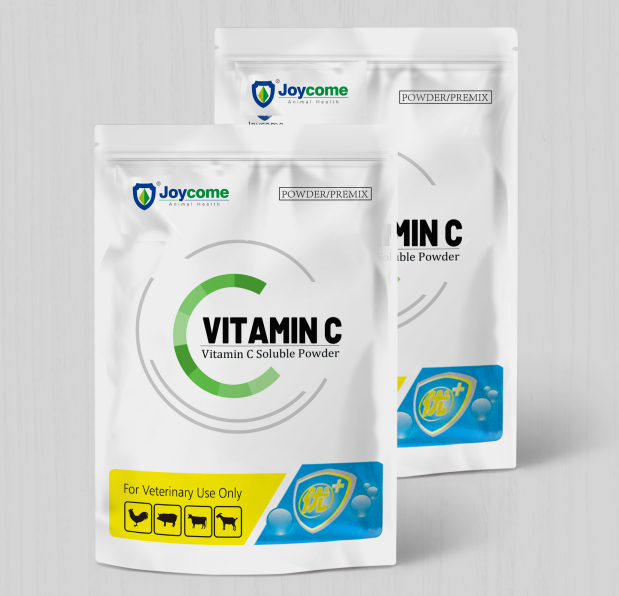With the increasing scale of farming, the stress of poultry and other increases and vitamin deficiencies and obvious deficiencies will occur. The addition of vitamin C has become an important part of production.
Main ingredients: Vitamin C.
Functional Indications:
1.Anti-stress effect of vitamin C: environmental, physiological and nutritional stress will affect the synthesis and utilization of scorbutic acid in livestock and poultry, and the addition of vitamin C to feed can effectively alleviate stress and reduce the incidence of livestock and poultry to ensure its healthy growth.
2.The anti-heat cooling effect of vitamin C: During the summer heat stress, the addition of vitamin C to the feed can reduce the capillary permeability of the body, and the body’s metabolism and heat production are not too high, which helps animals resist heat stress damage of the body, is conducive to the growth and development of livestock and poultry, and reduces the morbidity and mortality of livestock and poultry at high temperatures.
3.Vitamin C can enhance the immune function of livestock and poultry Vitamin C is a nutrient necessary for the normal function of the immune system of livestock and poultry, participates in the synthesis of immune proteins, and promotes the production of interferon. Regular addition of vitamin C to feed will play a great role in improving the immunity of livestock and poultry.
4.The growth promotion effect of vitamin C In the initial feeding stage of livestock and poultry, an appropriate amount of vitamin C mixture is commonly used to feed, which can make livestock and poultry grow evenly, reduce the incidence and improve the survival rate, and the addition of vitamin C to the feed can also increase the auxin content in the serum of livestock and poultry and increase weight.
5.The role of vitamin C in improving the reproductive performance of livestock and poultry Adding vitamin C to feed can significantly improve the semen quality of breeding animals, increase the birth rate of mother animals, and play a satisfactory effect on promoting the production of breeding animals.
6.The role of vitamin C in the prevention and treatment of diseases In addition to the prevention and treatment of scurvy, vitamin C is also commonly used in the treatment of various infectious diseases, high fever and trauma or burns of livestock and poultry to enhance the body’s disease resistance and promote wound healing.
7. The role of vitamin C in the prevention and treatment of anemia and homoeostasis in livestock and poultry. Vitamin C is reductive. Clinically, livestock and poultry suffer from dysentery. Adding vitamin C will improve homoeostasis, shorten the recovery period after infection, and reduce mortality.

Post time: Jan-16-2023
